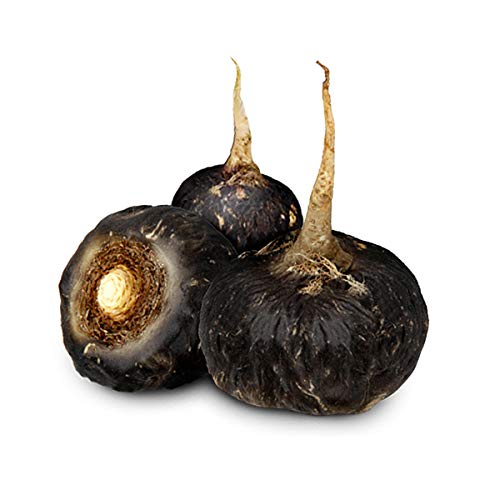Sweet Potato (Ipomoea batatas) Health Benefits and Traditional Uses
Sweet potatoes are a great addition to any diet, as they are a nutrient-rich food that provides a wide range of health benefits. Sweet potato leaves are highly nutritious and have been used in traditional medicine for various health benefits. Here are some ways you can use sweet potato leaves as herbal medicine:
Health Benefits of Sweet Potato Leaves
- Boosting Immunity: Sweet potato leaves are rich in vitamins A and C, which are essential for a healthy immune system. They help increase the production of antibodies and white blood cells, which fight infections1.
- Promoting Digestive Health: The dietary fibre in sweet potato leaves helps maintain a healthy digestive system by promoting regular bowel movements and preventing constipation1.
- Anti-inflammatory Properties: Sweet potato leaves contain antioxidants like beta-carotene and lutein, which help reduce inflammation in the body.
- Supporting Heart Health: The potassium and magnesium in sweet potato leaves help regulate blood pressure and support overall heart health.
- Enhancing Vision: The high levels of vitamin A in sweet potato leaves are beneficial for eye health and can help prevent vision-related issues.
How to Use Sweet Potato Leaves Medicinally
- Sweet Potato Leaf Tea: Boil fresh sweet potato leaves in water for about 10 minutes. Strain and drink the tea to boost your immune system and improve digestion.
- Sweet Potato Leaf Smoothie: Blend fresh sweet potato leaves with fruits like bananas and berries to make a nutritious smoothie. This can be a great way to get a dose of vitamins and antioxidants.
- Sweet Potato Leaf Stir-fry: Cook sweet potato leaves with garlic, onions, and other vegetables. This dish can help reduce inflammation and support heart health.
- Sweet Potato Leaf Soup: Add sweet potato leaves to soups and stews. This can be particularly beneficial for boosting immunity and improving digestion.
The sweet potato tubers
1. Rich in antioxidants: Sweet potatoes are packed with antioxidants like beta-carotene, vitamin C, and quercetin, which help prevent damage to blood vessels and reduce inflammation in the body. This can help lower the risk of stroke and heart attack.
2. High in fibre: Sweet potatoes are a good source of dietary fibre, which can help lower blood pressure and cholesterol levels, two key risk factors for heart attack and stroke.
3. Low in fat: Sweet potatoes are naturally low in fat, making them a healthy addition to any diet. High-fat diets can increase the risk of heart attack and stroke, so incorporating more low-fat foods like sweet potatoes can help protect your heart health.
What are Heart Attack and stroke?
In a heart attack, the blood flow to your heart is suddenly blocked. A stroke occurs because of a sudden interruption of blood flow in your brain.
- Sudden numbness or weakness in the face, arm, or leg, especially on one side of the body.
- Sudden confusion or trouble understanding speech.
- Sudden trouble seeing in one or both eyes.
- Sudden trouble walking, dizziness, or loss of balance or coordination.
- Sudden severe headache with no known cause.
Other Health Benefits of Sweet Potatoes
- Promotes gut health: Sweet potatoes contain both soluble and insoluble fibre that can be beneficial for gut health. Fibre-rich diets containing 20–33 g of fibre per day have been linked to a lower risk of colon cancer and more regular bowel movements
- Supports vision: Sweet potatoes are rich in vitamin A, which is essential for good vision. One cup of baked sweet potato with skin provides 213% of the Daily Value (DV) of vitamin A
- Enhances brain function: Sweet potatoes are a good source of choline, which is important for brain development and function. Choline has been linked to better memory and cognitive function.
- Supports immunity: Sweet potatoes are high in antioxidants that protect your body from free radical damage and chronic disease. They also have anti-cancer properties.
- Regulates blood sugar levels: Sweet potatoes have a low glycemic index, which means they release sugar into the bloodstream slowly. This can help regulate blood sugar levels and prevent spikes and crashes
Side effects of sweet potatoes
Sweet potatoes are a nutritious and healthy root vegetable that offers many health benefits. However, there are some side effects to be aware of. Here are some of the side effects of sweet potatoes:
- Vitamin A toxicity: Sweet potatoes are high in vitamin A, and taking too much of this vitamin may lead to vitamin A toxicity. Symptoms of this condition may include headache and rash. Consuming too much vitamin A over a long period can also be a reason for coarse hair, partial hair loss (including the eyebrows), cracked lips, and dry, rough skin.
- Stomach pain: Sweet potatoes contain a type of sugar called mannitol that can cause stomach pain if you have a sensitive stomach. A frequent stomach pain every time you eat sweet potatoes might suggest that you are intolerant to foods containing mannitol. Mannitol can also trigger bloating and diarrhoea in some cases.
- Blood glucose level spikes: Sweet potatoes have a low glycemic index, which means they release sugar into the bloodstream slowly. However, the way a food is prepared also affects its glycemic index. A boiled sweet potato has a low GI of 44. But if baked for 45 minutes, the same sweet potato has an extremely high glycemic index level of 94. Individuals watching their diet and blood sugar levels for disease management or overall wellness must make sure they prepare sweet potatoes correctly.
Please note that these side effects are rare and that sweet potatoes are generally considered safe. If you have any concerns about using sweet potatoes, please consult a healthcare professional.
The video below explains how to prevent stroke and heart attack using sweet potatoes









Review Sweet potato (Ipomoea batatas).
You must be logged in to post a review.